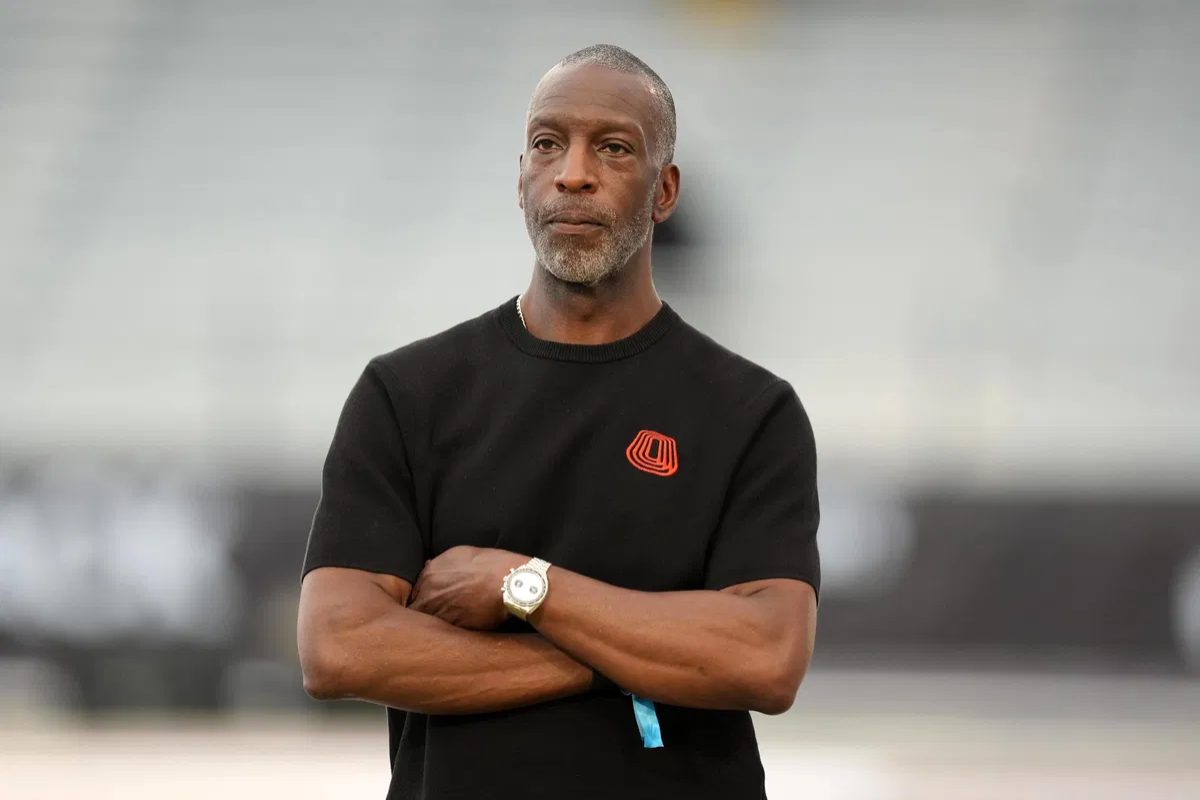
Imago
Credits: IMAGO

Imago
Credits: IMAGO

Imago
Credits: IMAGO

Imago
Credits: IMAGO
Michael Johnson has dreamt of Grand Slam Track as a revolution, and started to build his dream into reality. But by mid-2025, the project stood on the edge of collapse. After three meets, a canceled Los Angeles finale, unpaid prize money, and whispers of legal action left the track legend’s dream league under siege. Nearly $19 million in obligations hung over athletes, vendors, and staff. And a meet that promised a transformation of the sport instead started facing mounting frustration.
Watch What’s Trending Now!
It all began soon after the first meet in Kingston, Jamaica, in April 2025. Despite promises of more than $30 million in backing, the league never had access to that sum. By June, with athletes still chasing prize money and appearance fees, Johnson admitted the GST lacked the funds to finish its season. Furthermore, a report even showed that the league owed $77,896 for a facility rental in Miramar, Florida. Adding to that, another debt of $14,928.50 too was in the queue for ticket surcharges from its Miami stop.
However, recent reports reveal a positive change. With a new round of financing secured in September, the GST seemingly stands in a better position. Several existing investors provided emergency support, described by a source close to the league as “up to eight figures.” And fortunately that cash was enough to cover half of what Grand Slam owes athletes, with wires landing in accounts Friday morning. “It’s a huge step forward and credit to GST in fulfilling their promise to pay the athletes,” said Ray Flynn, who represents Josh Kerr and Cole Hocker. Flynn even added, “I have always maintained belief that [GST] would eventually pay.”

The update marked a significant shift from the mood in June, when Johnson canceled the Los Angeles meet and cut staff salaries by 15 percent. Athletes had already begun weighing legal options, and agents warned that patience was “wearing thin.” Now, with a portion of debts cleared and staff pay safeguarded, the league is attempting to rebuild confidence. A memo sent to investors framed the development plainly: “Today is the beginning of Grand Slam Track’s reboot. We apologize for frustrations and hardships caused by the payment delays to date. Over the next 60 days, we will be working hard to make things right.”
However, the picture still remains incomplete. Because Grand Slam’s outstanding liabilities include roughly $11 million to athletes and $8 million to vendors. The recent infusion addresses only a part (exactly half) of those debts. Yet the move demonstrates renewed commitment from its lead backer, Winners Alliance, whose board is chaired by billionaire Bill Ackman. Though Ackman was “supportive of the plan but was not heavily involved,” the group advanced funds to keep the remaining employees on payroll and pressed others to contribute between $5 million and $10 million.
Now, the bigger question is whether the league can manage its debts and come back strong for a second chance. As Flynn put it, the payments represent “a huge step forward” and, for the first time in months, offer athletes a reason to believe Grand Slam Track still has a path forward. But these controversies also welcomed several debates and frustration from athletes and fans. And a US Olympic medalist, too, slammed the league unapologetically.
Grant Fisher voiced frustration as Grand Slam Track’s $100K pledge faltered
Post his run for GST, Grant Fisher stood in an uneasy place. As the promised reward from Grand Slam Track never arrived. Having committed to the full slate of races in the league’s first year, he secured victories in Kingston and Miramar that should have earned him $100,000 each. Instead, he waited. The appearance fee for Kingston reached his account, but the prize purse never did. Speaking candidly about the matter, he admitted that, “if it drags out a bit longer, I think a lot of people will be up in arms, and we’ll see how that concludes.”

Fisher’s frustration sharpened as the end of July passed without resolution, despite assurances that payments would be completed by the 31st. Preparing for the national championships in Eugene, he confessed that his thoughts remained divided, saying he ideally wished to be “focusing on running and all that stuff” but that the unsettled situation might soon “come to a head.” At 28, the uncertainty of unmet financial promises indeed left Fisher bothered.
Yet his remarks also carried a broader warning. Fisher added how Johnson’s promise for the Grand Slam Track was something he “really believed in,” but he made clear the risk if obligations were not honored, “If the money doesn’t come through, then no athlete is ever going to want to take a chance on a new idea. No investor is going to want to take a chance on a new idea.”

